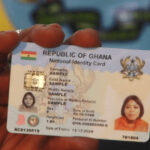West African Countries Making Strides in Digital Development
Recent data from the Internet Society has revealed significant progress in digital development across West African countries, highlighting improvements in Internet resilience in the region. This advancement reflects a growing commitment to enhancing digital infrastructure, security, and market readiness, ultimately leading to more stable and accessible online services for millions of users.
The Internet Society’s Pulse Internet Resilience Index tracks key indicators such as infrastructure, performance, security, and market preparedness. The latest findings show that West Africa’s overall Internet resilience score has increased to 34%, a two-percentage-point rise from 2022 to 2023. This positive trend translates into improved access to essential online services like education, healthcare, and economic opportunities, highlighting the Internet’s crucial role as a catalyst for development in the region.
Notable progress has been observed in countries like Benin and Senegal, which saw impressive six- and ten-point increases, respectively, between 2022 and 2023. These advancements have propelled them to the second and fifth positions in West Africa, showcasing their commitment to enhancing Internet infrastructure and accessibility.
Commenting on Senegal’s progress, Ahmath Bamba Mbacke, President of Internet Society Senegal Chapter, highlighted the country’s significant Internet penetration and infrastructure development. With over 60% of the population having Internet access and a high percentage of users accessing 4G mobile Internet, Senegal is prioritizing stability and security in its online ecosystem.
Similarly, Malick Alassane, Chair of Internet Society Benin Chapter, emphasized Benin’s efforts to improve Internet access, security, and market readiness. By investing in robust infrastructure, Benin aims to leverage the social and economic benefits of a resilient Internet, facilitating easier access to online services for its citizens and businesses.
Côte d’Ivoire leads the region with the highest Internet Resilience Index score of 42%, showcasing consistent growth in digital development. Other top-performing countries in West Africa include Burkina Faso, Nigeria, and Ghana, reflecting the region’s overall progress in enhancing Internet resilience.
The Internet Society’s efforts to increase locally cached content in countries like Benin, Burkina Faso, and Niger aim to improve Internet performance and affordability. By hosting popular content and digital services within regions, these initiatives contribute to a more efficient and stable online experience for users.
Collaboration with local partners, investment in Internet infrastructure, and adoption of enabling policies are driving the digital transformation in West Africa, paving the way for a more resilient and accessible Internet landscape in the region.
With a focus on enhancing Internet infrastructure and promoting local content hosting, West African countries are poised to further strengthen their digital capabilities, ensuring sustainable growth and development in the digital age.








